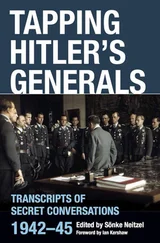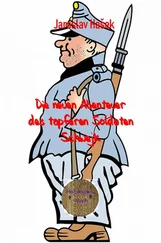The inertia of a society’s infrastructure, the way its daily life is experienced, comprises one major part of split consciousness. Another part consists of what is changing and, in particular, of whatever modifies people’s frame of reference. That includes the actions of a government that operated with propaganda, restrictions, laws, arrests, violence, and terror as well as opportunities for entertainment and identification. In reaction to those changes, there were changes in the perception and behavior of a populace that, while by no means universally politically engaged, did participate in social affairs and tried to make sense of what was happening. For example, anti-Jewish measures such as the state-encouraged boycott of Jewish businesses in late March and early April 1933 were perceived in contradictory ways within the German populace, as were later anti-Semitic initiatives as well. As paradoxical as it may sound, the capacity for Nazism to engender contradictory responses was an integrating force. National Socialist society still retained enough discrete spaces and parts of the public sphere for people to debate the pros and cons of government measures and actions among like-minded peers. {34} 34 Sebastian Haffner also wrote: “The strange and disheartening thing was admittedly that, beyond the initial shock, the first grand announcement of a new mood of murder in all of Germany occasioned a flood of discussions—but about the ‘Jewish question’ and not the anti-Semitic question. It was a trick the Nazis also used successfully in a number of other ‘questions.’ By publicly threatening someone else—a country, a population or a group of people—with death, they prompted a general discussion of the other’s right to existence instead of their own. Such discussions actively questioned the value of others’ lives. Suddenly, everyone felt competent and justified in having and spreading an opinion about Jews.” Haffner, Geschichte, p. 139ff.
To believe that a modern dictatorship like National Socialism integrates a populace by homogenizing them is to mistake the way it functions socially. The reverse is the case. Integration proceeds by maintaining difference, so that even those who are against the regime—critics of the Nazis’ Jewish policies or committed Social Democrats—have a social arena in which they can exchange their thoughts and find intellectual brethren. This mode of integration extended all the way down to the storm troops and reserve police battalions, which by no means consisted solely of Nazified, unthinking executioners, but included rational people who reached agreement with one another about what they did and whether they did it for good or evil purposes. {35} 35 Welzer, Täter, p. 161ff.
The mode of social integration in every government office, every company, and every university was difference, not homogeneity. In all those social realms, there were subgroups that differentiated themselves from the rest. This always destroys the cohesion of the social aggregate. Difference lays the foundation for the aggregate.
The Nazi regime ended freedom of the press, censored criticism, and created a highly conformist public sphere with the help of extremely modern, mass media propaganda. This, of course, did not leave individual Germans untouched. Yet it would be a mistake to assume that differences of opinion and discussion were completely eradicated. To quote historian Peter Longerich:
From more than two decades of research on the social history and changes in mentality of the Nazi dictatorship, we know the populace of the German Empire between 1933 and 1945 did not exist in a condition of totalitarian uniformity. On the contrary, there was a significant amount of dissatisfaction, non-conformist opinion and varied behavior. What is, however, especially characteristic of German society under Nazism was that expressions of such resistance took place above all in the private sphere and at most in a kind of semi-public sphere that included circles of friends and colleagues, people who regularly met in bars and immediate neighbors. Such encounters happened within existing structures in traditional social milieus that had been able to preserve themselves in the face of the Nazi racist community: in church parishes, the relations between neighbors in villages, elite conservative and bourgeois social circles, and those parts of the socialist community that had not been destroyed. {36} 36 Peter Longerich, Davon haben wir nichts gewusst! Die Deutschen und die Judenverfolgung 1933–1945 (Munich: Siedler, 2006), p. 25ff.
While much of daily life remained the same in Nazi Germany and formed the surface upon which society functioned, there were also drastic political and social changes. The split of society the Nazis brought about in the twelve years from 1933 to 1945 between a majority of members and an excluded minority was not only a goal justified by the Nazis’ racist theory and desire for power. It was also a means to realize a particular form of social integration. A number of recent historical works have looked at the history of the Third Reich through the lens of social differentiation. Saul Friedländer has especially focused attention on anti-Jewish practice, repression, and elimination; {37} 37 Saul Friedländer, Das Dritte Reich und die Juden: Die Jahre der Verfolgung 1933–1945 (Munich: Deutsche Taschenbuch Verlag, 1998), p. 24.
Michael Wildt has stressed the coercive force used in the early days of the Third Reich as a means of collectivization. {38} 38 Michael Wildt, Volksgemeinschaft als Selbstermächtigung: Gewalt gegen Juden in der deutschen Provinz, 1919–1939 (Hamburg: Hamburger Edition, 2007).
Longerich has shown that the social exclusion and then extermination of Jews was by no means an accidental, strangely senseless element of Nazi politics, but their very core. The “de-Jewification” of Germany and broad stretches of Europe was, in Longerich’s words, “the instrument for gradually penetrating the various realms of individual existence.” {39} 39 Peter Longerich, Politik der Vernichtung: Eine Gesamtdarstellung der nationalsozialistischen Judenverfolgung (Munich: Piper Verlag, 1998), p. 578.
This penetration allowed moral standards to be reformatted, bringing about an obvious change in what people considered normal and deviant, good and bad, appropriate and outrageous. Nazi society was by no means amoral. Even the many instances of mass murder cannot be reduced to a collective ethical dissipation. On the contrary, they were the result of the astonishingly quick and deep establishment of a “National Socialist morality” that made the biologically defined Volk and the community it entailed the sole criterion for moral behavior and promoted different values and norms than those obtained, for instance, in post–World War II Germany. {40} 40 Raphael Groß, Anständig geblieben: Nationalsozialistische Moral (Frankfurt/Main: Fischer Verlag, 2010); Welzer, Täter, p. 48ff.
Included in the Nazi moral canon were the ideas that people were fundamentally unequal, that the worth of the Volk outweighed that of the individual, and that what counted was particular and not universal solidarity. To cite just one instance of Nazi morality: it was under Hitler that failure to offer assistance in an emergency became a punishable crime in Germany. Yet that dictate applied only to the Nazi Volk community and could not be extended to people’s refusal to help Jews. {41} 41 Saul Friedländer, Das Dritte Reich und die Juden: Die Jahre der Verfolgung, 1933–1945 (Munich: Deutsche Taschenbuch Verlag, 1998), p. 24.
This sort of particular morality was characteristic of the Nazi project in toto. The new European order and, indeed, global domination of which the Nazis dreamed were conceived as a radically inequitable world, in which members of different races would be treated differently under the law.
Читать дальше












